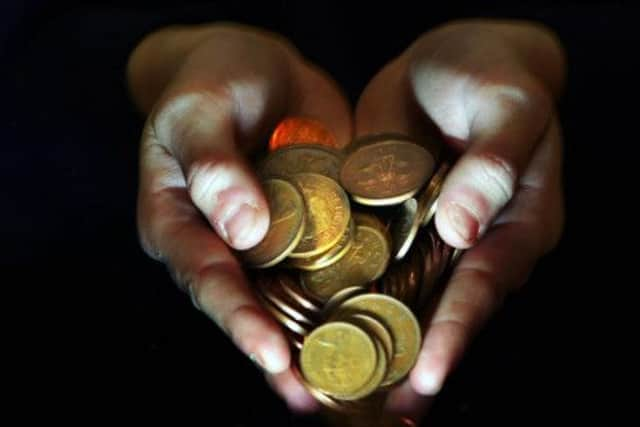Eddie Barnes: The numbers game of public finances


That is paid for through Scottish taxes, debt and a cash transfer from the UK. That latter transfer is worth around £7bn a year, the Centre for Public Policy and Regions (CPPR) estimated on Monday. If Scotland votes for independence, that would go and, in 2015-16, be substituted by around £5-6bn in North Sea taxes. A gap would therefore emerge.
That gap would soon grow, the CPPR and Institute of Fiscal Studies estimated this week; to around £3.5bn by 2017-18. In addition, if Scotland is forced to cut its debt mountain in the same way as George Osborne proposes, a further £2.2bn of cuts will be required (though that is definitely going to happen if Scotland votes No).
Advertisement
Hide AdAdvertisement
Hide AdSo far, so clear – and so gloomy. And the solutions proposed by the CPPR and the IFS on Monday – which ranged from scaling back a Scottish Army, Navy and RAF to something more like a home guard, removing zero VAT rating on food and children’s clothes, and revaluing the properties of thousands of middle-class households – did not exactly offer comfort to pro-independence politicians. So where does the SNP Government go from here?
The cold numbers from both think-tanks have two basic assumptions. They are based on a realistic stab at oil prices over the coming years. And they conclude that, after a No vote, the same £7bn cash bonus from the UK will continue to flow to Scotland. Both, the SNP can be expected to challenge. Predicting the oil price is notoriously difficult. Hence, the SNP Government has been able to cherry-pick more optimistic data over recent months to produce numbers that show a nation in surplus. Recent downward revisions make that difficult and the longer-term picture on oil receipts is even worse, but the case will be made nonetheless.
And on the £7bn subsidy, the SNP is already warning that the Barnett Formula, which hands Scotland its generous cash transfer, will go after a No vote. English local authority leaders already have their eyes on it. The Welsh are grumbling. Give Holyrood even more powers, goes the argument, and the quid pro quo is that Barnett dies. And, the argument continues, Scotland – having said No to independence – will be shorn of any leverage to prevent it.
Professor John McLaren of the CPPR said this week that no political party would be so “suicidal” as to kill off the Barnet Formula in one go. Rather, he suggested that a “son of Barnett” might reduce Scotland’s advantage more gradually.
The SNP is desperately trying to convince people that a No vote next year brings its own consequences and will prompt an uncertain future. Faced by black holes in their own plans, it may be that the doubts over Barnett will give them their best chance.